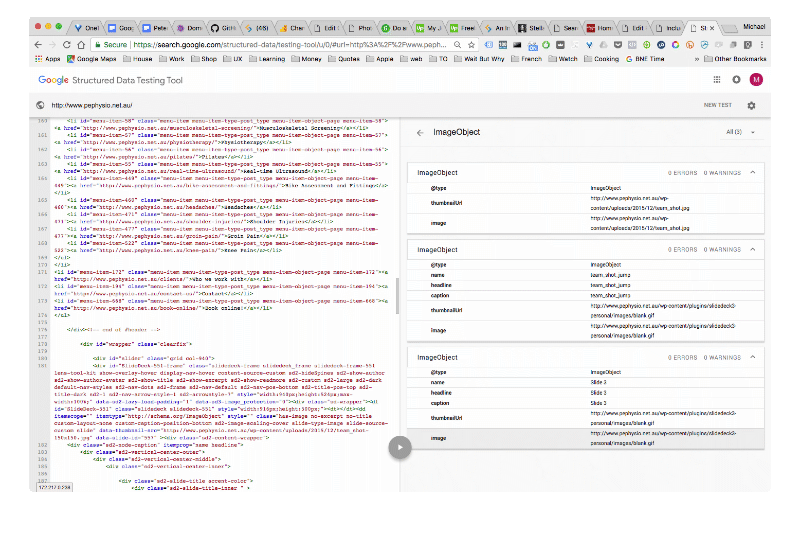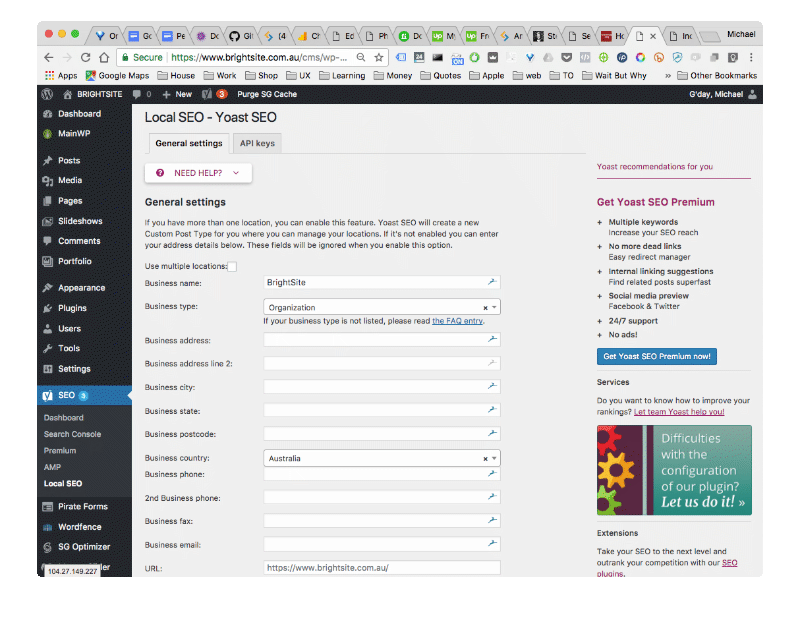Welcome to the first post in a multi-part series about Search Engine Optimisation with Google, specifically improving your sites performance in organic Google search results.
One of the challenges of performing search engine optimisation is ensuring that Google can accurately locate and understand information that you include on your site. For example opening hours, or your business location. While search engines have gotten pretty good at scouring websites for this data and including it in search results… there is still a lot of room for error and ambiguity when it comes to the information that search engines find about your local business.
The good news is that there is a solution that can help to ensure the information about your business is clearly expressed and can be understood. You see, several years ago, Google and some of the other search engine players (like Yahoo, Microsoft, Yandex and so on) got together and decided to collaborate to solve this problem.
What they came up with was a markup language or schema* that can be used to clearly identify key pieces of information on websites. Things like identities, organisation names, the type of organisation (medical/legal/retail), addresses and locations (including lat/long details), phone numbers and so on. This information can be referred to as “structured data”.
So you’re probably wondering, if these companies came up with this language years ago, why are you just telling me about it now. Well in technology world, sometimes it takes a few years for a standard to mature and be adopted. In the case of schema, as recently as September last year, Google stated that structured data should be accompanied by markup (schema) wherever possible. And thankfully for those of us who work in Search Engine Optimisation, there is a tool that allows us to test for structured data on a website. It’s the Google Structured Data Testing Tool.
How do I get this information on to my website you may ask… do I have to learn to write code in this markup language to do it?
Well, that’s another bit of good news… most of the important data on your website can be marked up with Schema using a plugin by a company in the Netherlands called Yoast. For a number of years now these guys have been producing some great SEO plugins (including the most popular free plugin for SEO). Recently they came out with the Yoast Local SEO plugin which can be used to add schema about your business, it’s location, contact details, opening hours and more. While the plugin is free to install, they charge a license fee (currently $69 USD for one domain) which enables you to obtain updates automatically and receive support for the plugin as needed.
The plugin doesn’t guarantee that the schema mark up will be correct either. Using Google’s testing tool to verify the information after the plugin has been enabled and the info included is an important step. We can do this for you as part of our SEO service and we invite you to contact us for more info.
Schema/Markup language*: schema is a bit like HTML (the main language used on the web) but can be thought of as a more detailed way of identifying specific bits of information.


